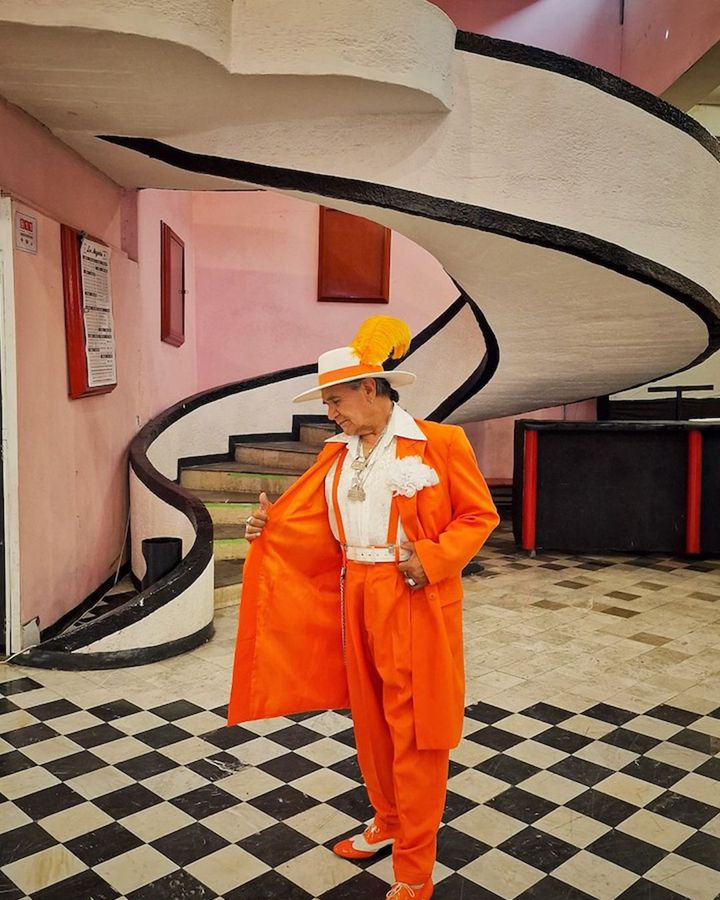The door to the bedroom closet opened wide, revealing dozens of brightly coloured zoot suits and shoes. On a nearby table, there were a wide-brimmed hat with feathers, a chain watch, suspenders and a pair of rhinestone cufflinks. For José de la Rosa, this room connects him with his most genuine self.
“I am a blood pachuco. My father was a pachuco and my grandfather before him,” he said, looking out towards his 1950s Dodge parked outside his Mexico City home. “This is not a costume, it is a way of life and a culture that transcends generations.”
The pachucos were a youth gang movement of Mexican-Americans in the late 1930s headquartered in East Los Angeles that later spread to other US cities along the US-Mexican border. This distinct subculture was comprised of the descendants of Mexican immigrants whose high-waisted pants, long jackets, pompadour haircuts, prominent tattoos and Spanish-English slang were a defiant rebellion against mainstream US culture that had marginalised them. Pachucos refused to be drafted by the US Army into World War Two and were portrayed by the media as gangsters and juvenile delinquents.
Pachucos were inspired by other historically discriminated groups – especially Black men in New York City’s Harlem neighbourhood, who donned zoot suits and turned dandyism into a quiet rebellion against society. Like jazz in 1930s-1940s Harlem, pachucos’ exuberant look had its own soundtrack too, with the rhythms of danzón, cha cha cha, mambo and swing providing the pulsating rhythm of their community.
Over the years, many pachucos living in the US have returned to Mexico. And while pachucos no longer represent rebellion, hundreds of old-school dandies in Mexico City, Tijuana and Los Angeles still carry on the tradition as a symbol of elegance, dignity and Mexican pride.
Modern-day pachucos still wear the 1930s-esque dress of their ancestors (Credit: Rafael Estefania)
Today, visitors to Mexico City can see modern-day pachuchos who gather every Saturday at the Parque de la Ciudadela to dance in the public park. They also meet on Tuesdays at Salon Los Angeles, the oldest dance hall in Mexico, which opened in 1937. The walls of this time capsule are covered with hundreds of photographs of the bands and orchestras that have played here for several decades.
“Our culture will survive, it will never die,” de la Rosa told me before inviting a lady to dance with him. “The pachuco is elegance, the pachuco is dignity. The pachuco lives and the dance goes on.”
Our Unique World is a BBC Travel series that celebrates what makes us different and distinctive by exploring offbeat subcultures and obscure communities around the globe.
—
Join more than three million BBC Travel fans by liking us on Facebook, or follow us on Twitter and Instagram.
If you liked this story, sign up for the weekly bbc.com features newsletter called “The Essential List”. A handpicked selection of stories from BBC Future, Culture, Worklife and Travel, delivered to your inbox every Friday.
